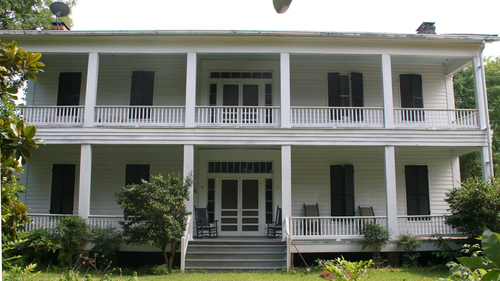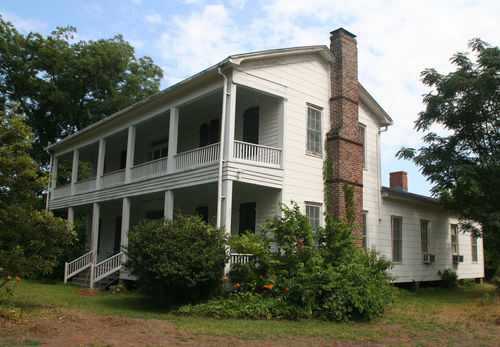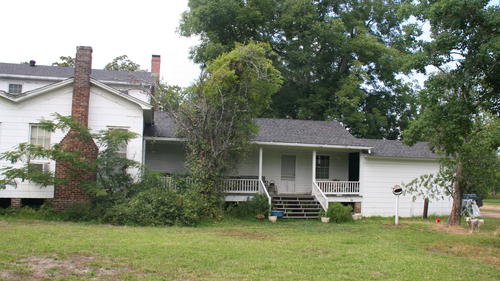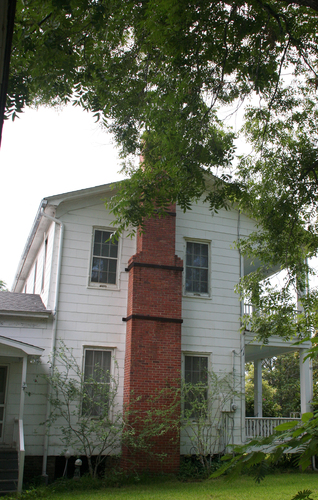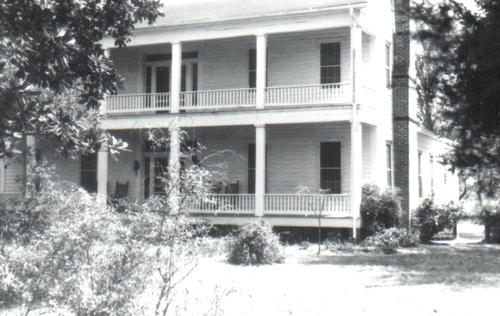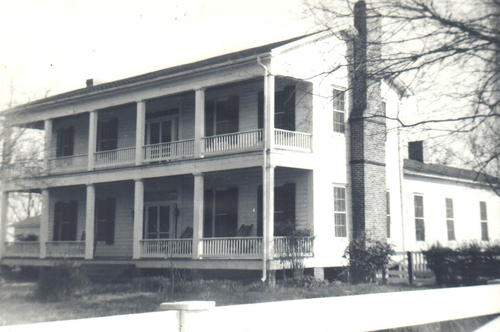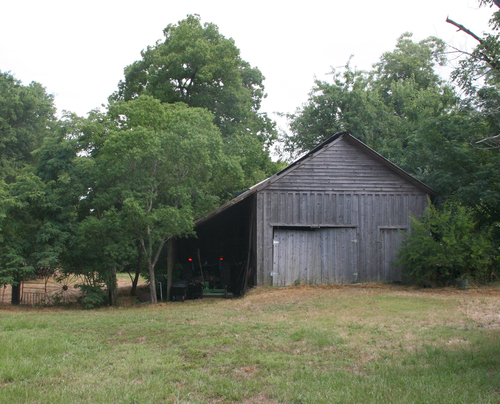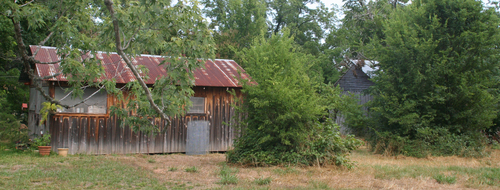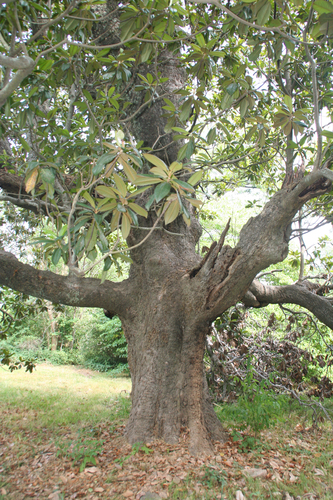831 Coleman Rd., Jonesville
Current Owner 2013: Ethelyn Coleman
National Reigster File
The Locust Grove Plantation was listed on the National Register in 1979.Architectural Survey
• Description: Locust Grove is a 1849, Greek Revival, two-story frame I-house with two chimneys and a gabled roof. An I-house is a vernacular house type, seen in rural farm areas. There is an attached double portico with five bays and square columns and balustrade. Outbuildings on the property include a slave cabin, gin, barn, and log cabin structure. 6/6 windows surround a double main entrance with transom and sidelights with an identical second floor.
• Significance: Locust Grove is a well preserved antebellum plantation home and is the oldest house in Jonesville.
Historical Background
Alpheus Wright and his family settled in Harrison County from Kentucky in 1847, where they lived in log cabin until the completion of their home in 1849. (Written account from Eudora Coleman Hodges, great-grandduaghter of Alpheus, Harrison County Archives) Situated upon 640 acres, the plantation produced major quantities of cotton and was a social center for the Jonesville community. The plantation remained successful through the 1850s but began experiencing decline as the Civil War approached in the 1960s. Another contributing factor to the plantation's decline was the arrival of the Southern Pacific Railroad in 1868. This altered the stagecoach line as well, which ran from Jefferson to Shreveport directly in front of Locust Grove. After Alpheus and his wife passed away, the land was sub-divided among family members in 1883, and the house became the property of Eudora Perry Wright, the widow of their only son.
The original house plan was shaped as a U on a square pad, with a dining room along the east, two bedrooms along the west, and a courtyard in the center. These original rooms are still part of the structure today, although some alterations have been made throughout the years. In 1928, the house was damaged by a fallen tree during a tornado but no changes were made during the repair process except that the shingle roof was replaced by a metal roof.
Although the plantation no longer exists, several of the original outbuildings still stand such as a slave cabin, a log cabin, the Wright's first home, and a barn. Although the outbuildings are in deteriorating shape, they still remain as visual memories that give one a glimpse into the past of the old plantation. As do the magnificence magnolias in front of the house which were planted by seed by Alpheus's wife in 1848. The house still remains in the family today, belonging to Eudora Earle Coleman Hodges, great, great, grand-daughter of Alpheus Wright. (Harrison County Property Information.)
